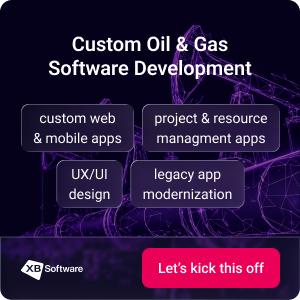A Production Engineer in the oil and gas industry plays a critical role in managing and optimizing the production of hydrocarbons from oil and gas reservoirs. Their primary goal is to maximize production rates while ensuring safety, efficiency, and cost-effectiveness.
Data Download Center
Production Engineer Contact List
Download a list of 1000+ Production Engineer contacts that work for Oil & Gas Operators in North America
Here’s an overview of their responsibilities and skills and roles:
Skills: Petroleum Engineering, Upstream, Completions, Natural Gas, Drilling, Hydraulic Fracturing, Field Development, Oil & Gas Industry, Failure Analysis, Completion, Cement, Oilfield, Reservoir Management, Multi-stage Completions, Remedial Workovers, Artificial Lift Design, Stacked Lateral Pad Design, Subsurface Well Planning, Petroleum, Oil & Gas
Roles:
- Reservoir Analysis and Optimization:
- Analyzing reservoir characteristics to optimize production techniques.
- Determining reservoir behavior, pressure, and fluid properties to optimize production strategies.
- Well Design and Optimization:
- Designing well systems and determining the best location and configuration for wellbores.
- Optimizing drilling and completion strategies to maximize well productivity and longevity.
- Production Monitoring and Analysis:
- Monitoring well performance and production rates to identify deviations and potential issues.
- Analyzing production data to improve operations and implement strategies for enhanced production efficiency.
- Production Maintenance and Troubleshooting:
- Troubleshooting production issues, such as equipment failures or flow problems.
- Implementing maintenance plans to ensure equipment reliability and minimize downtime.
- Reservoir Pressure Management:
- Managing reservoir pressure through techniques like water or gas injection to enhance production rates and recovery.
- Health, Safety, and Environmental Compliance:
- Ensuring compliance with safety regulations and environmental standards.
- Implementing safety measures to prevent accidents and incidents during production operations.
- Cost Management:
- Managing operational costs by optimizing production processes and minimizing waste.
- Identifying cost-effective solutions for production enhancement.
- Data Analysis and Technology Utilization:
- Utilizing data analytics and advanced technologies to improve production efficiency and optimize operations.
- Implementing automation and digitization to enhance monitoring and control systems.
- Collaboration and Communication:
- Collaborating with multidisciplinary teams, including geologists, geophysicists, reservoir engineers, and other stakeholders, to achieve production goals.
- Communicating production plans and strategies to relevant teams and management.
- Continuous Improvement and Research:
- Staying updated with industry trends, new technologies, and best practices.
- Conducting research and participating in training to improve skills and knowledge in production engineering.
Production Engineers need to balance technical expertise, operational efficiency, and safety measures to ensure the optimal and sustainable production of oil and gas resources. Their role is crucial in achieving the organization’s production targets and contributing to the success of the oil and gas industry.
Additional Oil & Gas Personas




